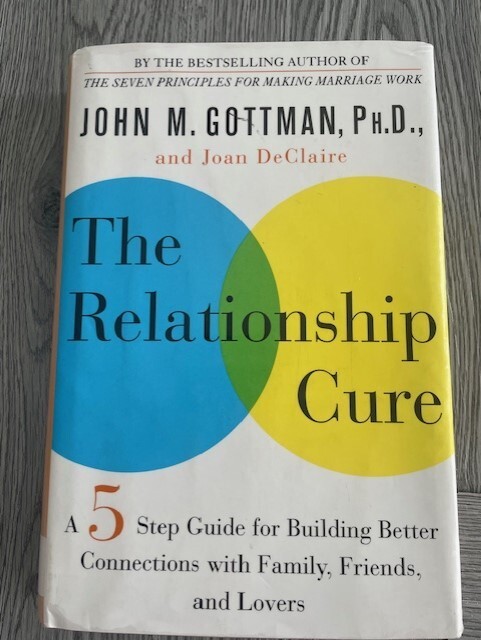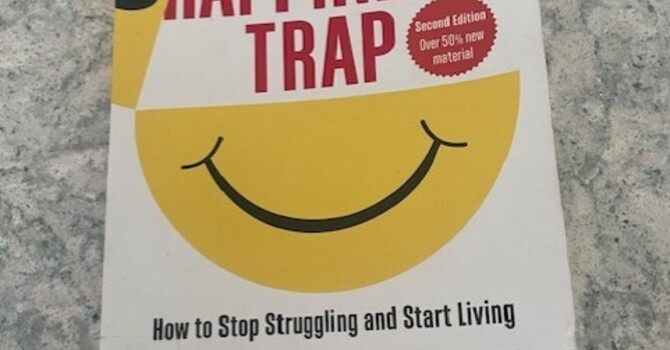
John Gottman’s “The Relationship Cure: A 5 Step Guide to Better Connections with Family, Friends and Lovers” is an exploration into the dynamics of human interaction and connection. Though I recommend it for married couples, I think it is a read for anyone struggling to make meaningful connections in their lives. It is my favorite John Gottman book, given its focus on forming connections. Drawing from decades of research, Gottman, a renowned psychologist and relationship expert, offers readers a pragmatic and scientifically grounded approach to improving and nurturing relationships.
One of the book’s most compelling aspects is its foundation in empirical research. Gottman and his team have studied thousands of couples and individuals, capturing data through observations, interviews, and physiological measurements. This robust scientific backing lends significant credibility to Gottman’s insights and recommendations, distinguishing “The Relationship Cure’ from many other self-help books that rely more on anecdotal evidence.
The core of the book revolves around the concept of ‘bids’ for emotional connection. Gottman explains that bids can be anything from a smile or a question to mover significant request for attention and support. The way these bids are received-either by turning towards, turning away or turning against-can profoundly impact the strength and health of relationships. Gottman’s detailed explanation and real-life examples make this concept easily understandable and applicable.
Gottman’s 5 step program is designed to help readers recognize and respond to these bids more effectively. The steps include:
- Analyzing Interactions: Recognizing and interpreting bids
- Finding the Hidden Needs: Understanding the underlying emotional needs driving bids.
- Responding Positively: Learning how to turn towards bids consistently.
- Creating Shared Meaning: Building a common ground and shared purpose in relationships.
- Overcoming Obstacles: Identifying and addressing barriers to effective communication and connection.
Each step is thoroughly explained and supplemented with exercises and activities that readers can practice in their daily lives. If you have read my previous blogs, then you know that I love solid actions and exercises. These practical tools make the book not only informative but also actionable, enabling readers to see immediate improvements in their interactions.
Gottman’s writing style is accessible and engaging, striking a balance between academic rigor and readability. He uses anecdotes, case studies and conversational language to illustrate complex psychological concepts, making them relatable and easy to grasp. This approach ensures that the book appeals to a wide audience, from those casually interested in improving their relationships to professionals seeking to deepen their understanding of human connection.
One of the strengths of “The Relationship Cure” is its broad applicability. While much of Gottman’s earlier work focused primarily on romantic relationships, this book extends its insights to friendships, family relationships, and even workplace interactions. This inclusive approach underscores the universality of Gottman’s findings and their relevance across different types of relationships.
However, some readers might find the book’s emphasis on emotional bids somewhat repetitive. The centrality of this concept means that it is explored in various contexts and from multiple angles, which, while thorough, might feel redundant to some. Additionally, those looking for quick fixes might be disappointed, as Gottman advocates for consistent effort and gradual change rather than instant solutions.
In conclusion, John Gottman’s “The Relationship Cure” is a valuable resource for anyone looking to deepen their connections and improve their relationships. Its solid research foundation, practical advice and engaging presentation make it a standout in the filed of relationship literature. By understanding and applying the principles Gottman outlines, readers are likely to find themselves more attuned to their interactions and better equipped to foster meaningful and fulfilling relationships.
Karrie Derbyshire
Contact Me



